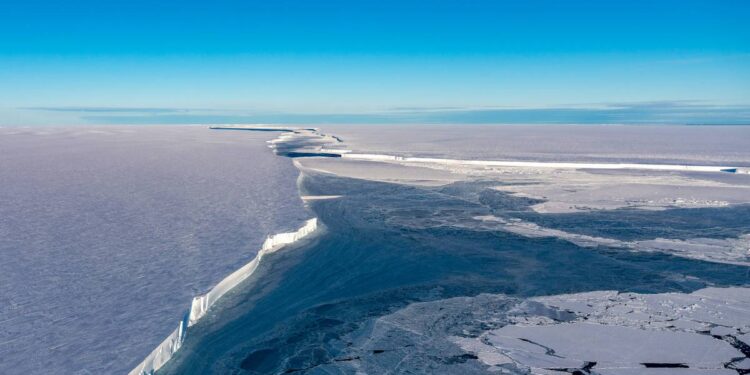The Clean Arctic Alliance welcomed the adoption of an IMO resolution to cut the climate impacts of black carbon emissions by shipping on the Arctic.
However, the Alliance expressed disappointment in the watering down of its substance in order to reach consensus and placate a small but vocal group of opposing countries.
Proposed during last week’s Marine Environment Protection Committee (MEPC 77) by Canada, Finland, France, Germany, Iceland, Netherlands, Norway, Solomon Islands, Sweden, UK, and US, the resolution calls for support of “voluntary use of cleaner fuels by ships operating in or near the Arctic” (MEPC 77/9).
To remind, on November 25, some 27 countries (France, Sweden, Slovenia, Norway, Finland, US, Canada, Netherlands, Germany, Poland, Vanuatu, Spain, Monaco, Iceland, Italy, Croatia, Solomon Islands, Tuvalu, Belgium, Marshall Islands, Mexico, Palau, Tonga, Ireland, Fiji, Iran, Portugal) spoke in favor of paper MEPC 77/9, with more than 30 delegations backing it in total.
A small group of countries spoke in opposition, including Russia, China, India, Japan, Saudi Arabia, UAE and Angola.
During an informal working group to refine and finalize the resolution, the wording was systematically and meticulously watered down by opposing countries and shipping interests. This version was adopted during plenary on November 26th (MEPC 77-J-9).
Dr Sian Prior, Lead Advisor to the Clean Arctic Alliance, said: “While the Clean Arctic Alliance is pleased the IMO finally discussed and accepted the proposal for a black carbon resolution, which received support from over 30 delegations in plenary, including 27 IMO Member States, we are disappointed that in the effort to placate a small but vocal coterie of opposing countries, important substance was lost from the original draft resolution, leaving us with a watered-down version.
“However, what is important is that this resolution now sends a strong message that domestic and regional action to reduce black carbon emissions from ships should proceed.
“It was confirmed by a number of interventions from delegations during MEPC 77 that a switch to distillate, or other cleaner fuels and forms of propulsion by ships operating in and near the Arctic, will reduce black carbon emissions in the region.
“The Clean Arctic Alliance is confident that today’s adoption of the resolution on reducing black carbon emissions is the first step towards reducing the impact of the shipping sector on Arctic ecosystems and for Indigenous and local communities.
“If all shipping currently using heavy fuel oils while in the Arctic were to switch to distillate fuel, there would be an immediate reduction of around 44% in black carbon emissions from these ships. If particulate filters were installed on board these vessels, black carbon emissions could be reduced by over 90%.”
Black carbon is a short-lived climate forcer responsible for 20% of shipping climate impact (on a 20-year basis). When black carbon settles onto snow and ice, melting accelerates, and the loss of reflectivity creates a feedback loop exacerbating global heating. Black carbon emissions from shipping in the Arctic increased 85% between 2015 and 2019.
Although progress was made during MEPC 77 to address emissions of black carbon from ships, the Clean Arctic Alliance noted the disappointing lack of support from IMO Members for a proposed resolution from South Pacific islands states – Kiribati, Marshall Islands and Solomon Islands – recognizing the need to reach zero greenhouse gas emissions no later than 2050 (MEPC 77/7/3).
Prior said:
Reducing black carbon emissions is imperative for the shipping industry in the short term, but must happen in parallel with measures to reduce greenhouse gas emissions from shipping if it is to play its part in slowing down the loss of Arctic snow and ice.
“It has long been recognized that what happens in the Arctic, doesn’t stay in the Arctic, and will have repercussions elsewhere through sea level rise and changing weather patterns. In light of this, the lack of support for the proposed resolution from vulnerable low-lying island states is an unacceptable response to the climate crisis.”
The Clean Arctic Alliance also welcomed progress made during MEPC 77 on the consideration of the use of scrubbers and scrubber discharges, but stressed the urgency for the work proposed to be completed during 2022 as an increasing number of scrubbers are being installed and being used each year, since the IMO’s cap on the sulphur content on fuel oil came into effect in 2020 (MEPC 77/9/1).
Removing sulphur in exhaust emissions to then dump them into the ocean is completely unacceptable. Scrubbers and scrubber discharges should not be allowed in the Arctic or elsewhere.
…as Prior concluded.






























































